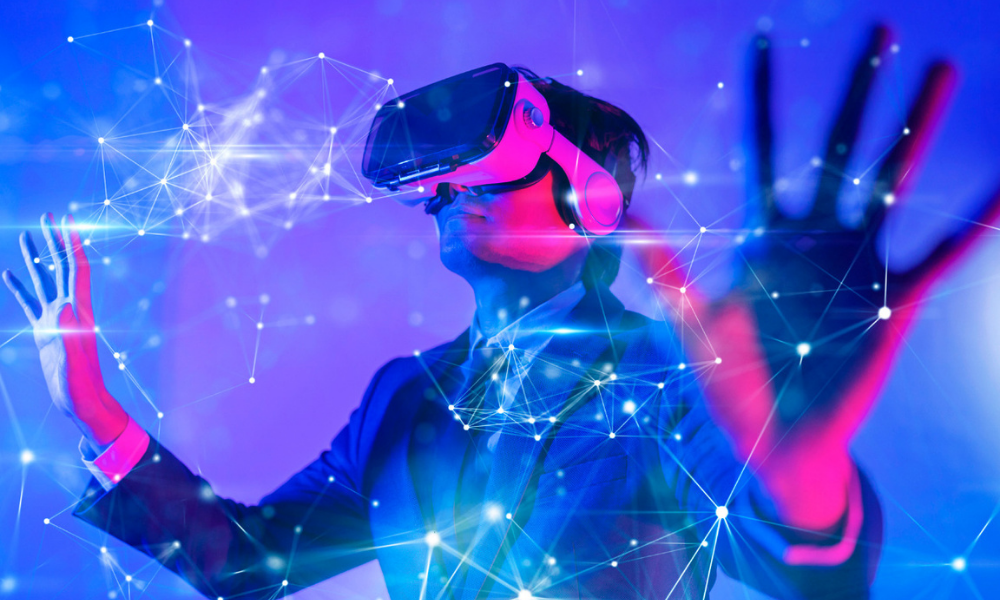
The METAVERSE And Beyond
As of late, Mark Zuckerberg declared Facebook would be changing its name to "Meta" and rebranding itself to zero in on one point: the metaverse.
From that point forward, the metaverse has turned into an interesting issue endless news stages, privately owned businesses, and surprisingly the public authority of South Korea have jumped on the train to examine the making of a metaverse.
With all the consideration the metaverse is getting, the potential appears to be perpetual. Be that as it may, will the metaverse satisfy its expectations?
The Fulcrum plunked down with U of O teacher Wonsook Lee from the workforce of designing, to talk about the various uses of a vivid computerized space.
| Crypto News: Bitcoin, Ethereum Erase Gains; Cardano Drops 5% |
By and large, the term alludes to a virtual world that joins parts of computer-generated reality (VR), increased reality (AR), web-based media, internet gaming, and digital currencies to permit clients to communicate practically. Some computer games have attempted to make places like this pride, like VRChat.
Nonetheless, no current item has come as near the genuine article as the Oasis, a fictitious virtual world depicted in the original Ready Player One by Ernest Cline.
Set, later on, the book depicts this present reality as having become horrifying and basically dystopian because of an energy emergency and a worldwide temperature alteration.
Therefore, the populace utilizes the Oasis metaverse for everything including school, work, gaming, motion pictures, and surprisingly spending time with companions. The main thing this present reality is left for is eating and resting.
At the point when getting some information about her viewpoint on the Oasis and assuming it could turn into reality, later on, Lee clarified, "a computerized twin world will get more grounded and more grounded, and the metaverse is the way to this advanced twin world."
Lee brought up that albeit augmented reality itself is the same old thing, as it has been being developed for more than fifty years, it didn't begin to stand out and intrigue until ongoing years when the Oculus Rift and other VR headsets opened up to mass shoppers.
Man-made brainpower (AI) had a comparative way, as it went through numerous long periods of uninterest - referred to casually as the "Computer-based intelligence winter."
Lee expressed that in 2012, Geoffrey Hinton, a teacher from the University of Toronto made a program that could direct object and picture acknowledgment and grouping.
He and his understudies took part in a rivalry and won the subsequent prize, however many were very inquisitive regarding how he got such a major leap in execution.
It turns out the group was utilizing profound learning, a subfield of computerized reasoning, to make a neural organization that all the more proficiently perceives these pictures.
Lee depicted this as an urgent moment for profound learning and AI, and interest started to climb once more.
"Profound learning is excellent for picture acknowledgment and normal language handling.
For increased reality, we want to have a comprehension of this present reality so we can superimpose pictures, not at all like augmented simulation which can simply be made with PC activity," she said.
Lee clarified this present time may be the essential opportunity that numerous parts of innovation, including processing power and the web, have up to speed to where the metaverse can turn into a genuine creation.
"In this way, presently we are discussing 5G web, where we can have significantly more information sent progressively.
This, alongside profound learning, picture understanding, computer-generated experience, and expanded the truth is the essential advances required for the metaverse."
| Related Topics: Walmart Is On Their Way To Create Cryptocurrency, NFTs |
A large part of the innovation that is nowhere is genuinely open also. Our cells can check our general surroundings to make AR, straightforward cameras can follow body developments, and there are even cardboard VR headsets that work with mobile phones.
It's implied that COVID-19 has driven every one of us into a universe of remote work and tutoring.
It is likewise driving us further away from genuine collaborations and expands the acknowledgment of virtual social communications, for example, seeing companions through PC games rather than face to face.
Lee added that on the grounds that "being associated with each other is turning out to be more troublesome, the metaverse can be extremely helpful in reproducing true 3D network."
She proceeded, "I think with COVID-19, a lot of things will lose human communication. Yet, I think with the metaverse, possibly we can have an alternate sort of cooperation, and perhaps one that can turn out to be more enjoyable too."
At the point when asked what the following significant advancement innovation supporting the metaverse will be, Lee reacted, "there is VR, AR, however, there is additionally XR - broadened reality.
[XR] can contain anything, including wearable PCs. If [the metaverse] goes to a higher level, it will be more similar to wearable PCs - more versatile however prepared to encounter the metaverse all over."
Lee accentuated a significant note about psychological well-being and what's to come: "Human inclination comes from the stone ages. Our bodies actually have propensities from those occasions.
As we advance toward the virtual world, there will be jumbles between a metaverse world and our old stone age propensities. In the event that we don't have an equilibrium, individuals will have issues.
We want to focus on our psychological and actual wellbeing and keep up with cooperations with individuals alongside us, not simply interfacing essentially."